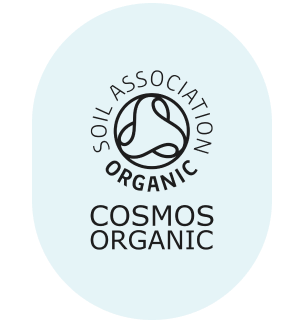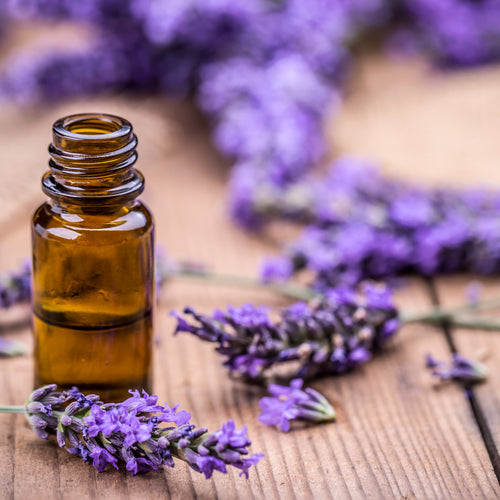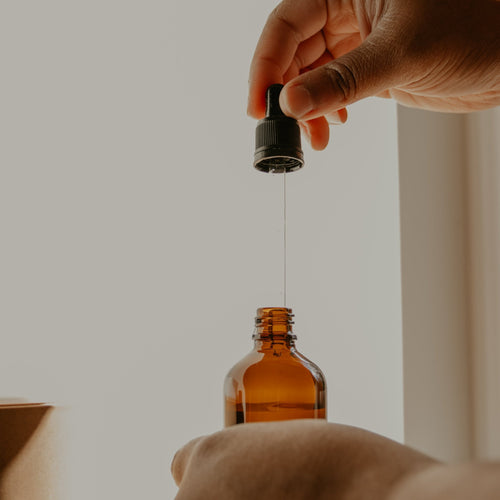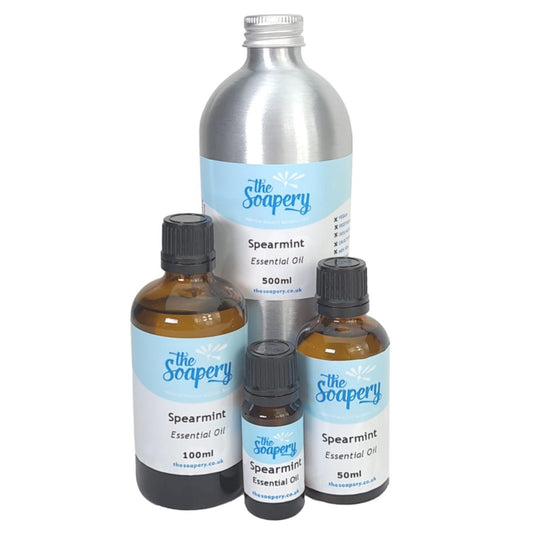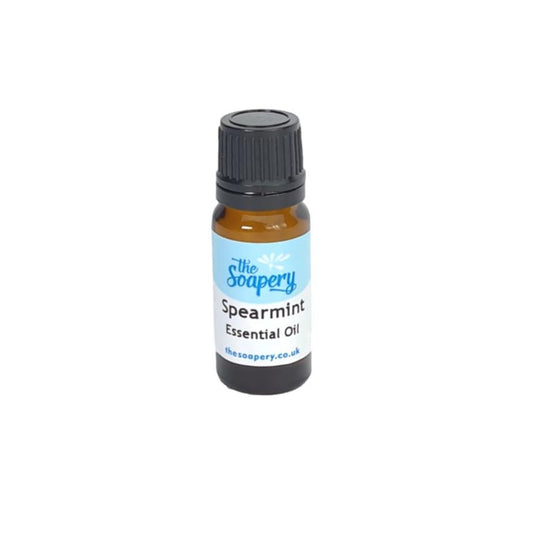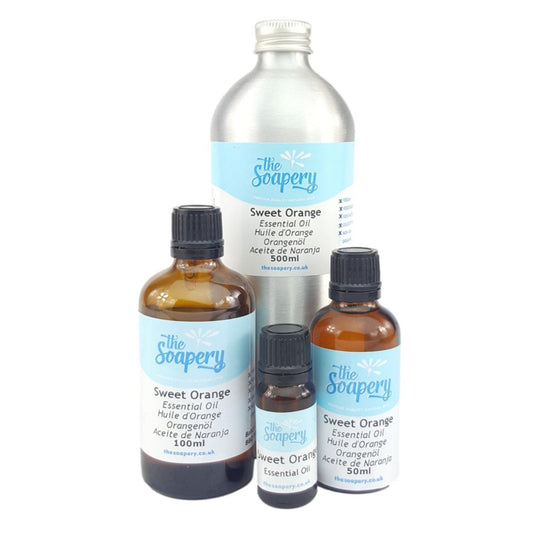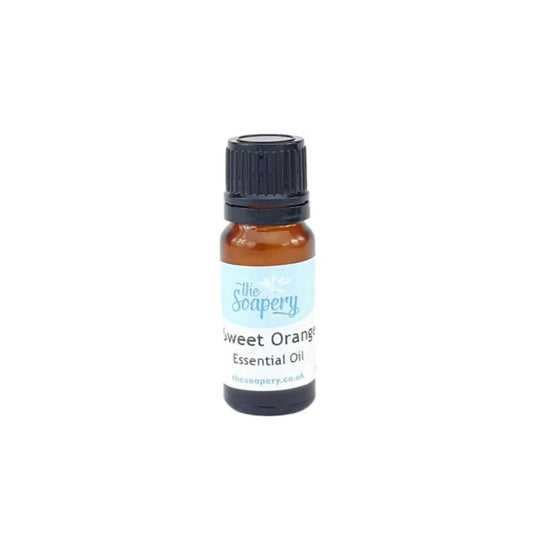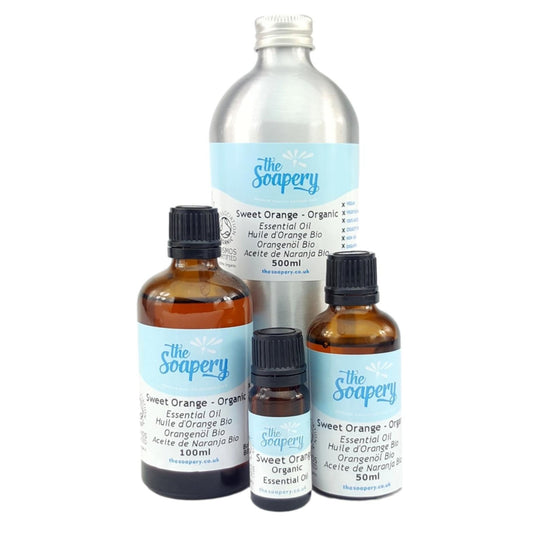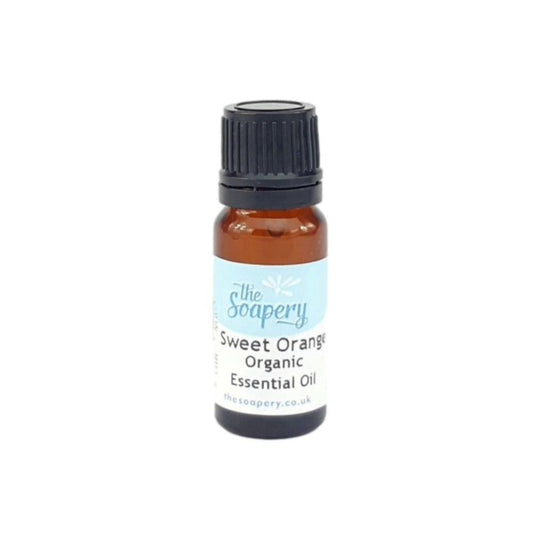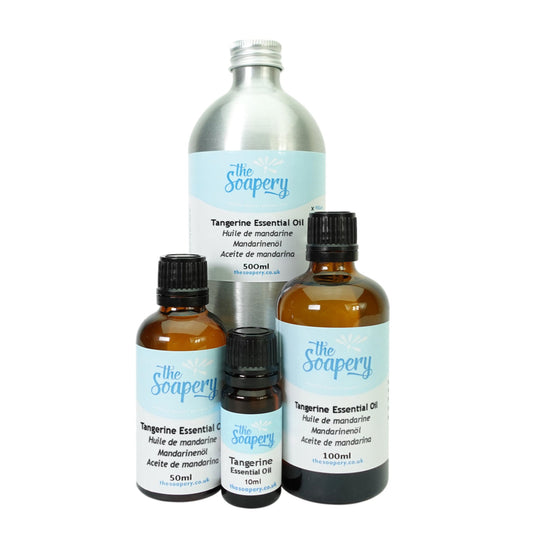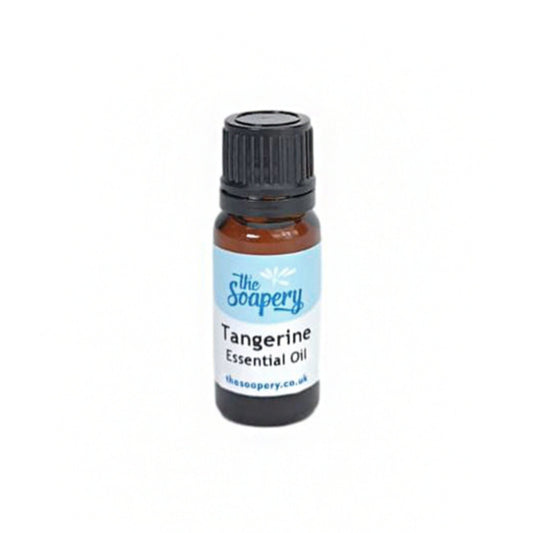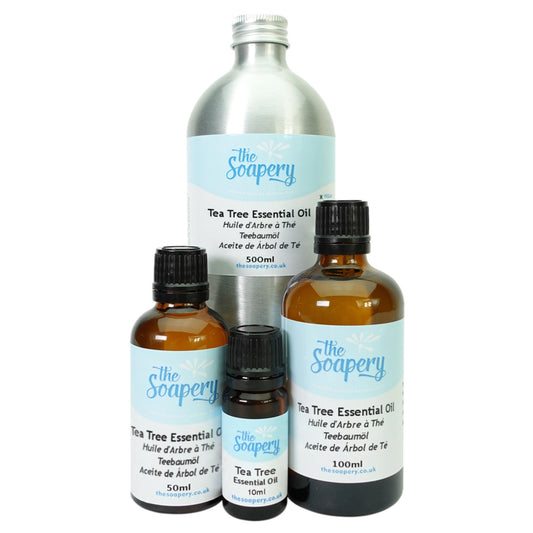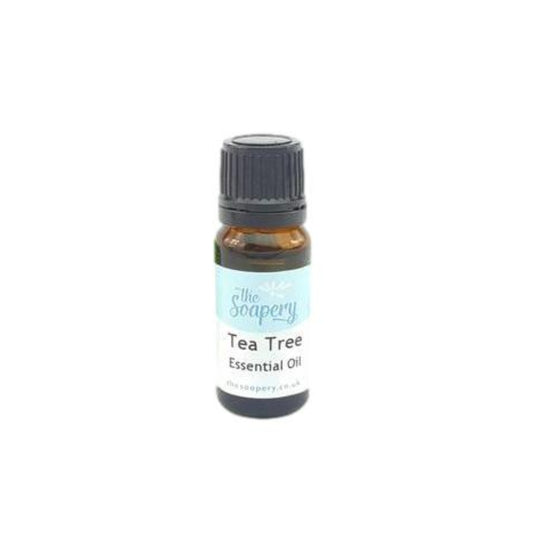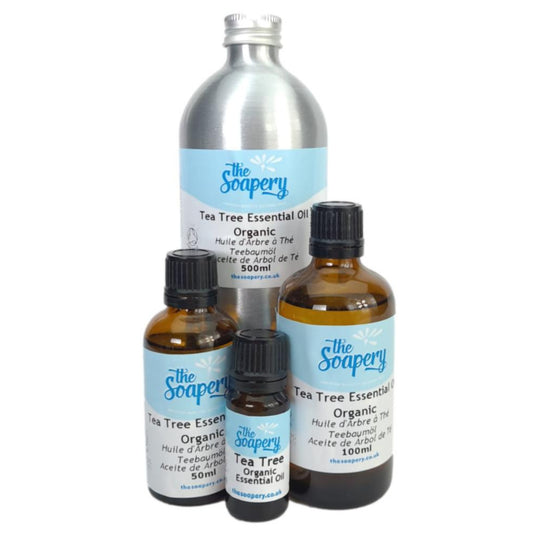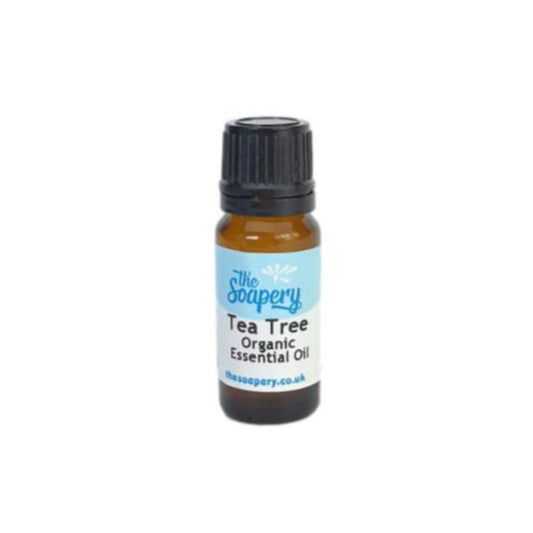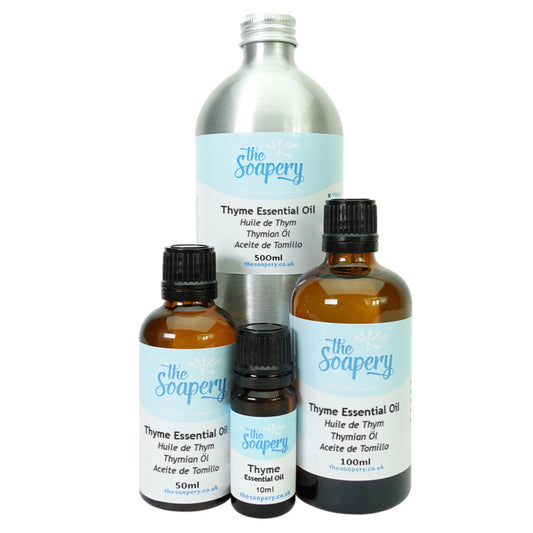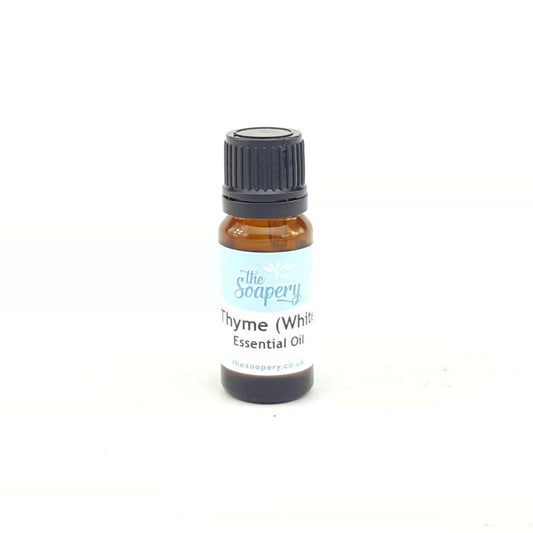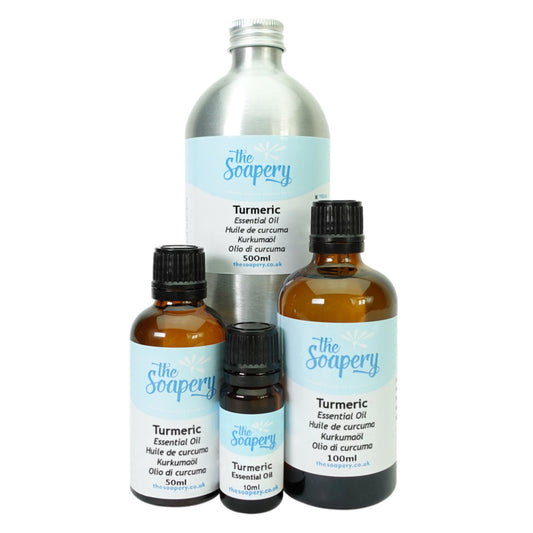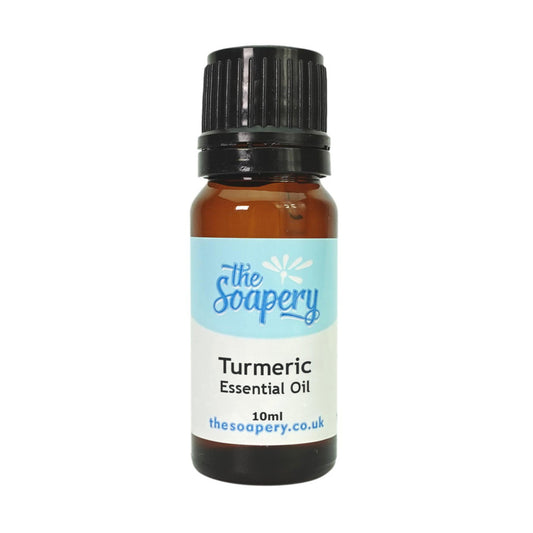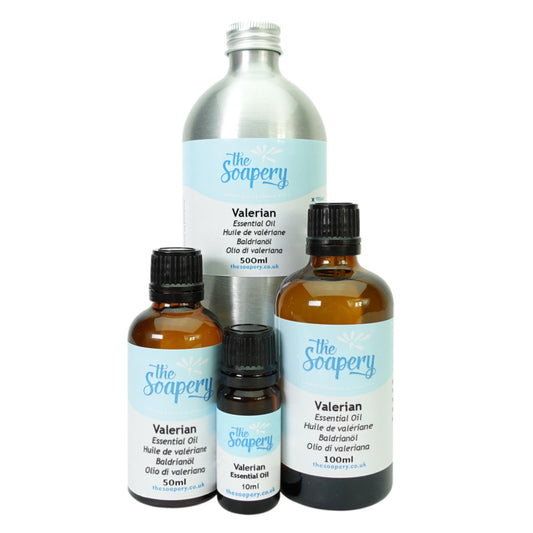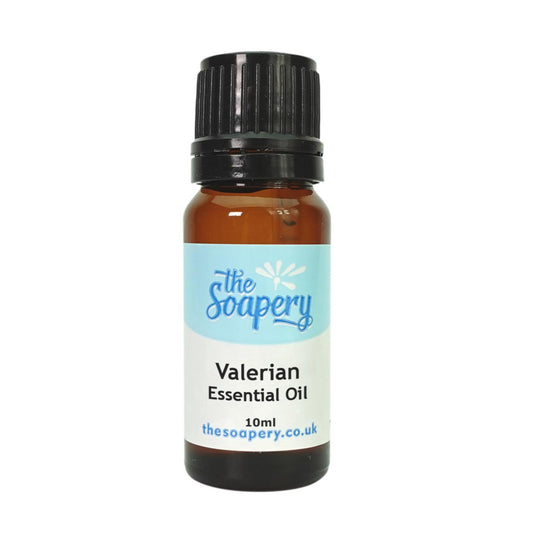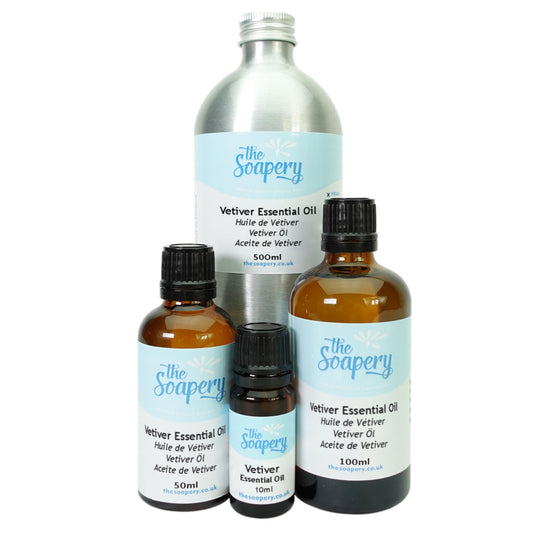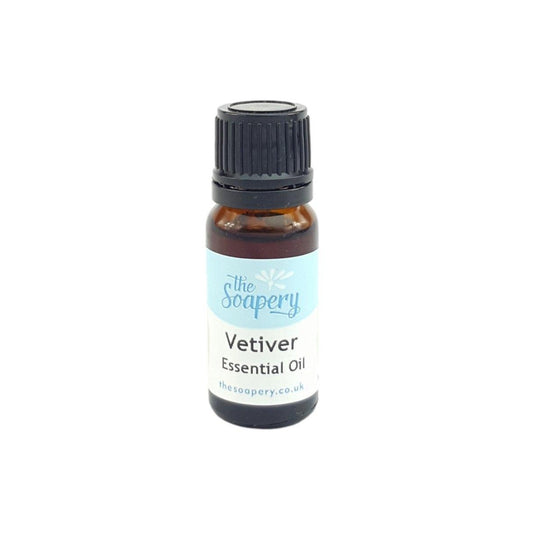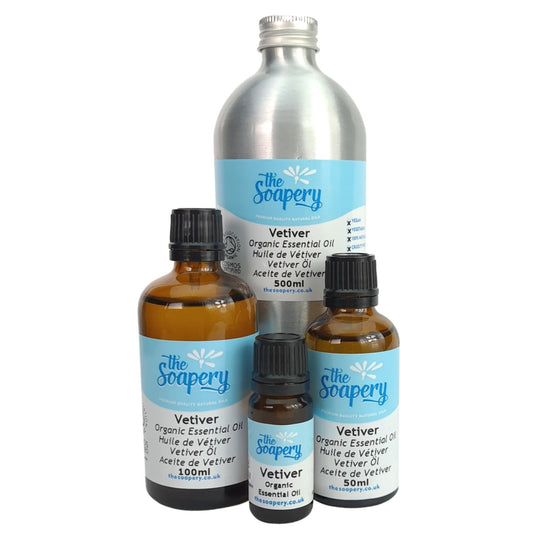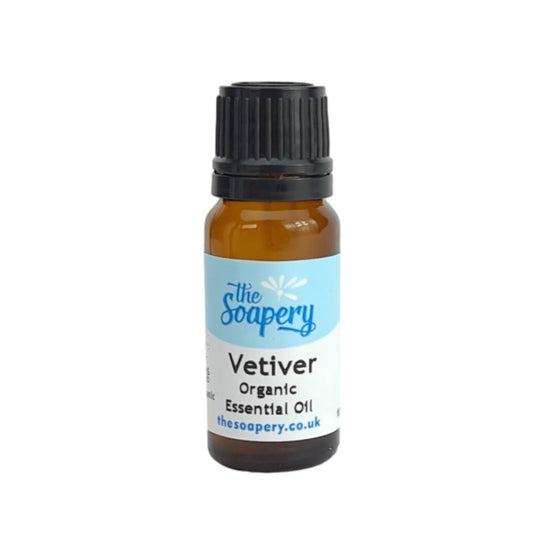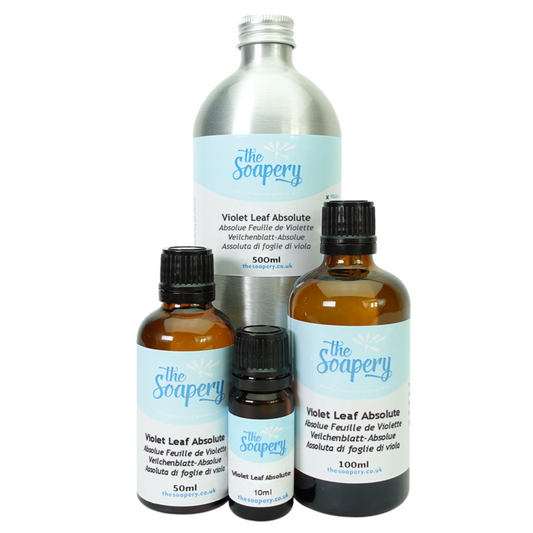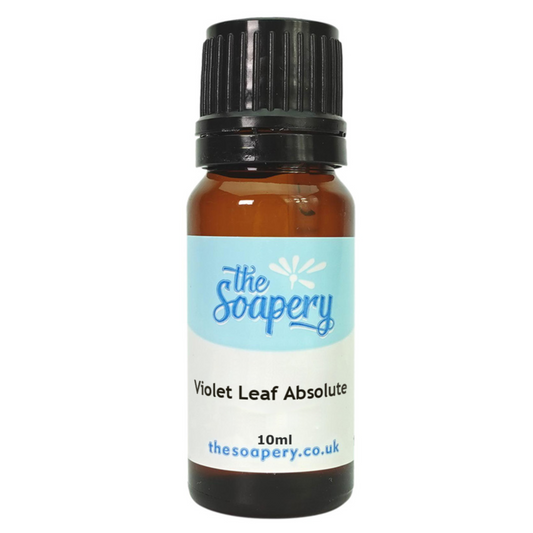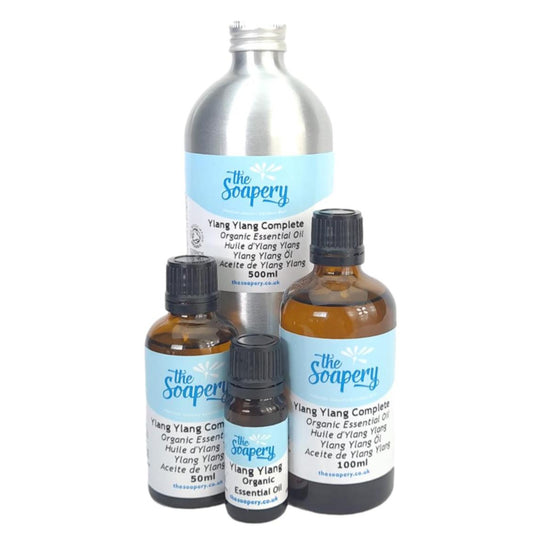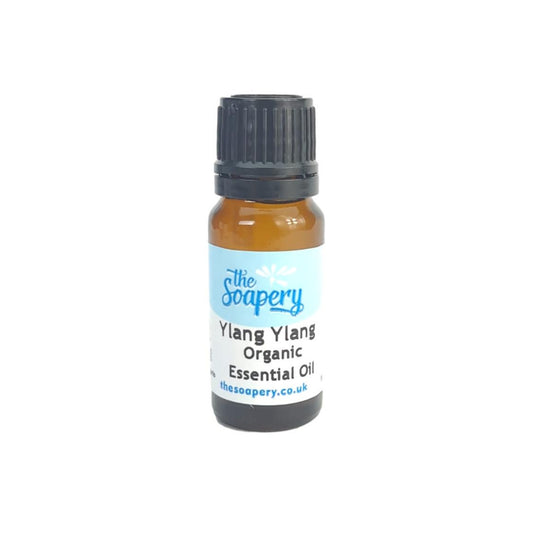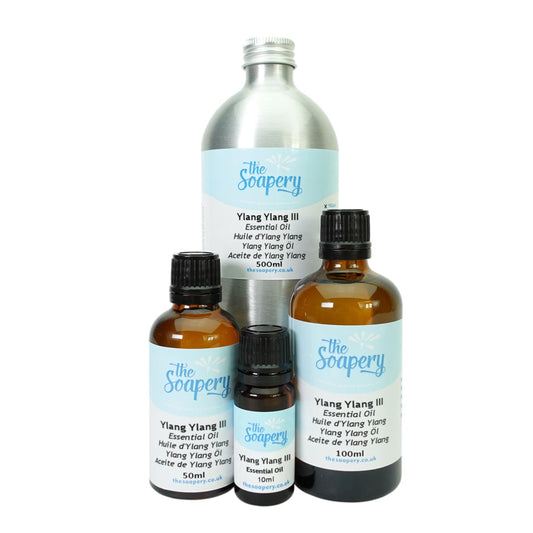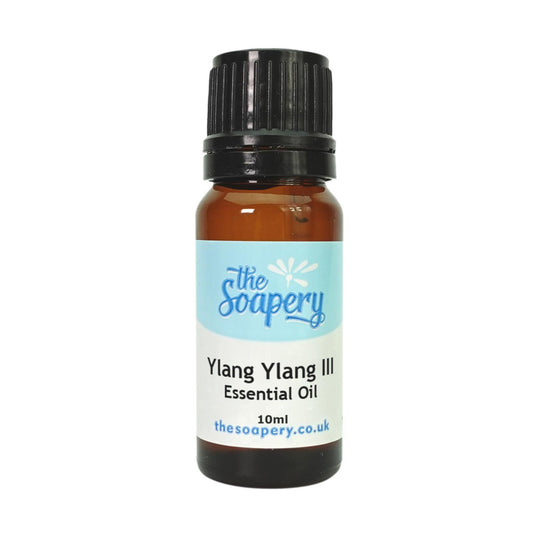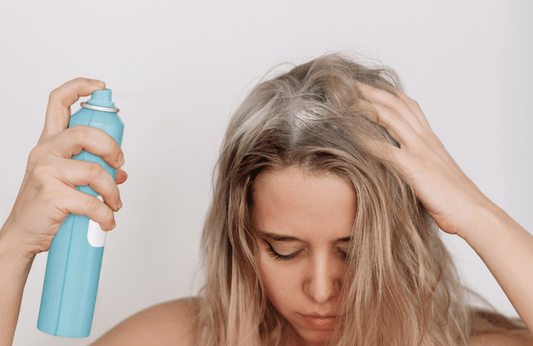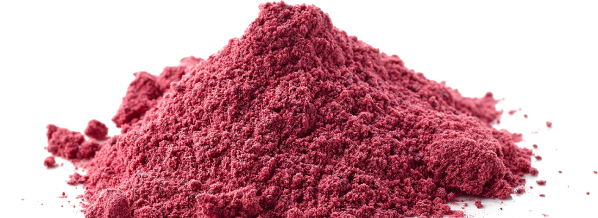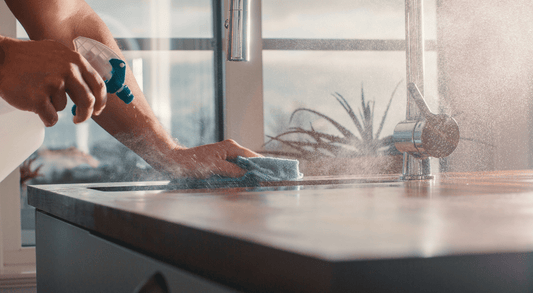
-
Spearmint Essential Oil
-
Sweet Orange Essential Oil
-
Sweet Orange Essential Oil – Organic
-
Tangerine Essential Oil
-
Tea Tree Essential Oil
-
Tea Tree Essential Oil - Organic
-
Thyme Essential Oil
-
Turmeric Essential Oil
-
Valerian Essential Oil
-
Vetiver Essential Oil
-
Vetiver Essential Oil – Organic
-
Violet Leaf Absolute
-
Ylang Ylang Complete Essential Oil - Organic
Ylang Ylang Complete Essential Oil - Organic
- Regular price
- From £7.99
- Sale price
- From £7.99
- Regular price
-
-
Ylang Ylang III Essential Oil
Why choose The Soapery?
-
Free Mainland UK Shipping
Get your ingredients quickly at no extra cost.
-
Same Day Dispatch*
Order before 3pm to have your package sent then and there.
-
Low Pricing
No glossy marketing or false promises mean big savings.
-
Ethical Suppliers
No qualms here. Our ingredients are ethically and sustainably sourced.
About Essential Oils
About Essential Oils
Bring the power of fragrance to everything from bath and body to aromatherapy sessions for an affordable price. Simply browse our scent library, make your order, and open the lid to a world of all-natural aromas. From fresh bergamot and earthy cedarwood to heady lavender and more, our essential oils are here to create a sensory experience to remember.
Learn More About Essential Oils
Pure ingredients, pure processes, and pure bliss.
Essential oils help makers, massage therapists, and more unlock the power of nature. Carefully extracted from the planet's finest raw plant matter, from leaves to bark, these tiny bottles pack a big punch.
Used for hundreds of years to capture the aroma and flavour of all things natural, pure essential oils are now popular additions to everything from perfumes, cosmetics, and soap to massage oil, aromatherapy products, and beyond.
Want to get started? Jump into the world of all-natural scents today with The Soapery's exclusive collection.
What are Essential Oils?
Ever wondered what makes massage oil smell so good? Or how soap makers perfectly capture your favourite scents? You've come to the right place. Essential oils are the ultimate key to crafting all-natural products with that coveted aromatic effect.
When it comes down to it, these potent oils start life as fresh plant matter, from leaves and petals to bark, roots, and seeds. Whether derived through steam distillation or compression, the end result is a strong liquid extract with a beautifully powerful, uniquely characteristic scent.
It can take hundreds of kilograms of plant matter to make just one small bottle of pure essential oil, but worry not - one small drop goes a long way. As long as you stick to high-quality providers like us, you and your customers are sure to get maximum impact for maximum value.
How to Use Essential Oils
With so many essential oils and organic essential oils to choose from, the ‘use book' is almost endless. With that being said, they're most often seen as an aromatherapy ingredient, and as a fragrance in soap, cosmetics, candles, and more. Whether melted, mixed, or rubbed in, this uniquely fragrant, fully natural collection of ingredients are the perfect way to create a lasting scent.
When being applied directly to the skin, pure essential oils need to be diluted - as their strong nature can prove irritating, especially to more sensitive types! Looking for the perfect pairing? Discover our carrier oils collection, or browse our blog to discover the perfect carrier and essential oil combinations!
The Benefits of Essential Oils
There's no doubt that pure essential oils are one of the best possible ways to craft a lasting world of plant-driven fragrance, whether in a candle, body oil, or bar of soap. But what benefits do they really bring to the table?
There are endless online pages, books, and guides claiming essential oils' status as a natural remedy to everything from insomnia to disease - however, the truth is that there's simply not enough genuine medical research out there to substantiate their statements. Whilst some tests have shown promising results, as an honest, fully transparent essential oil provider, we can't make any big commitments to the health benefits of our stock.
We can, however, speak for the sensory benefits of scent. Whether you're crafting beautiful floral bath bombs for a relaxing bathing experience, a fresh, zingy candle, or a spa-like massage oil filled to the brim with the finest oils out there, essential oils allow you to build your very own sensory experience from start to finish.
Our Favourite Skincare Recipes
We Value Each of Our Customers
Accreditations/Awards
We’re committed to offering a vast range of all-natural, organic products certified by The Soil Association, and we take pride in doing our part for the world around us.
Like most ingredients, the oils, butters, powders, and decorations in your handmade products are farmed or extracted from the natural world. Those certified as organic by the Soil Association were grown, produced, and harvested in line with strict regulations designed to protect and sustain the environment, including soils, ecosystems, animals, and people.
